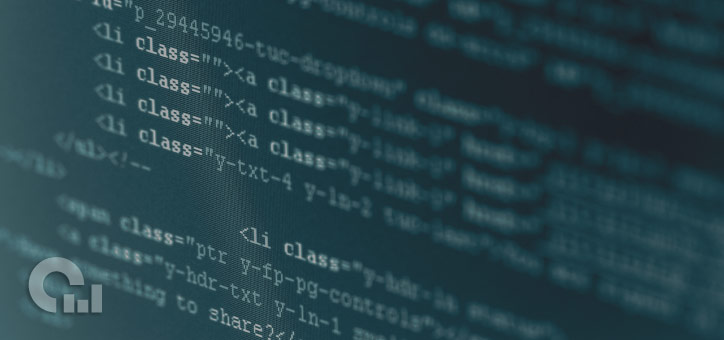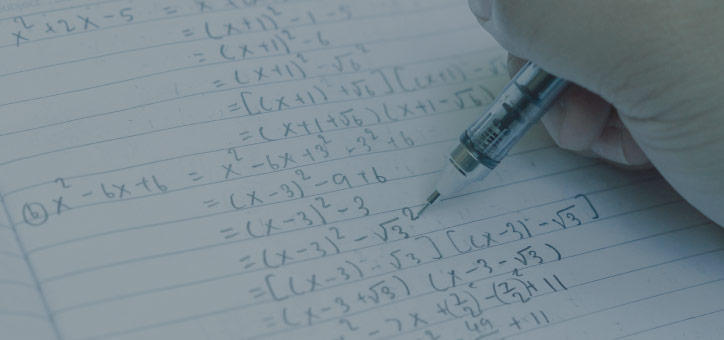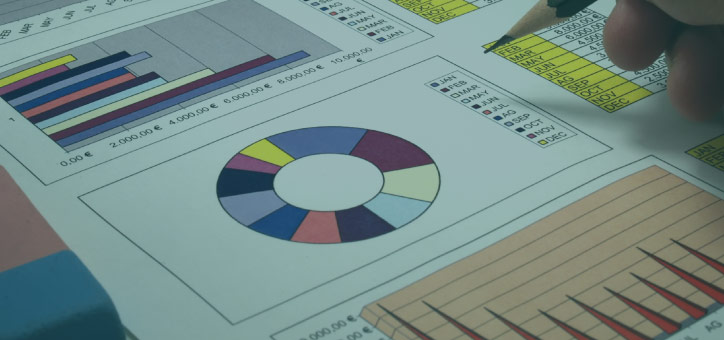Computer science is a fascinating field.
Unlike science, which investigates the natural world, or political science, which analyzes the institutions we’ve been using for thousands of years, computer science is newer, more nuanced, and often much more challenging to absorb.
Computer science can be intimidating, but you can do it. Becoming a proficient computer scientist does, however, require an intermediate or advanced understanding of a couple of subjects, including math.
Before we dive into the specifics, it’s important to note that not all computer scientists use math every day. In fact, some never use it at all. But math is still useful for two reasons: first, many computer scientists do use math every day, making the subject nothing less than a requirement for certain jobs; second, math can help you develop the underlying logic that working in computer science requires.
READ MORE: Best Online Computer Science Degrees
Why Does Computer Science Require So Much Math?

Computer science is a unique field. Some of its more difficult components take years to learn, while simpler languages can take one month or less if you study vigorously. For the more difficult computer science professions, you must have an understanding of discrete mathematics, calculus, and more. And because math is a subject that slowly builds on itself, you’ll have to take several math courses before getting into the more advanced classes.
More accessible programming languages are not so demanding. And these simpler languages can also lead to jobs that are just as well-paying and fruitful as the most challenging professions. Still, some people enjoy the challenge, and they prefer the work that only the more challenging jobs provide.
READ MORE: Ultimate Guide to Computer Science
What Kind of Math is Required for Computer Science?
Okay, so how much math do you need to know? If you want to obtain a computer science degree, it depends on your program. Most degrees require some understanding of calculus—many programs require students to reach Calculus III. Typically, computer science degree programs offer abstract algebra, discrete mathematics, graph theory, and other math courses alongside its computer science courses. The math courses play a critical role in helping students understand programming languages, data structures, differential equations, and more.
Calculus is often used in computer graphics, scientific computing, and computer security. If you want to work in these professions, you should have a fair understanding of calculus, whether through teaching yourself or learning through your university.
Discrete mathematics, linear algebra, number theory, and graph theory are the math courses most relevant to the computer science profession. Different corners of the profession, from machine learning to software engineering, use these types of mathematics. Without these math classes, you may struggle to manage data structures, databases, and algorithms.

This case is perhaps most true with discrete mathematics and linear algebra. From software engineering to front-end programming to computer security, discrete math and linear algebra provide the background information that computer scientists must know to do their jobs well. Without these math skills, integrating into the computer science world would be much more challenging.
Any reputable computer science degree program will teach discrete math, differential equations, calculus, and linear algebra. If you’re learning computer science on your own, though, you can find these math courses on the internet. A lot of these courses are free, too.
We want to make one thing clear: You can teach yourself HTML, Python, Java, and other languages without having extensive math skills. If you’re terribly scared of math and this post has discouraged you thus far, know that you can get a job with basic math skills as long as you’re strong in the subjects required for your position.
But if you’re looking at the computer science field in general, we’d be lying if we said that math wasn’t required. Imagine if cryptographers and software engineers didn’t know any math. If that were the case, our software would be helplessly disorganized and our defense department would never solve a code.
No matter where you stand on math, know that there’s a computer science job for you. Work hard, do your research, and always supplement what you’re doing with freelance work or internships. While computer science is an expansive field, it is quite competitive. Thus, your chances of getting a job will be much higher if you have a resume decorated with certificates, accomplishments, and experience.
If you’re ever confused, check out our other resources on computer science. We offer guides, program rankings, and all of the information you need to flourish in the computer science field. Good luck!
Related:





